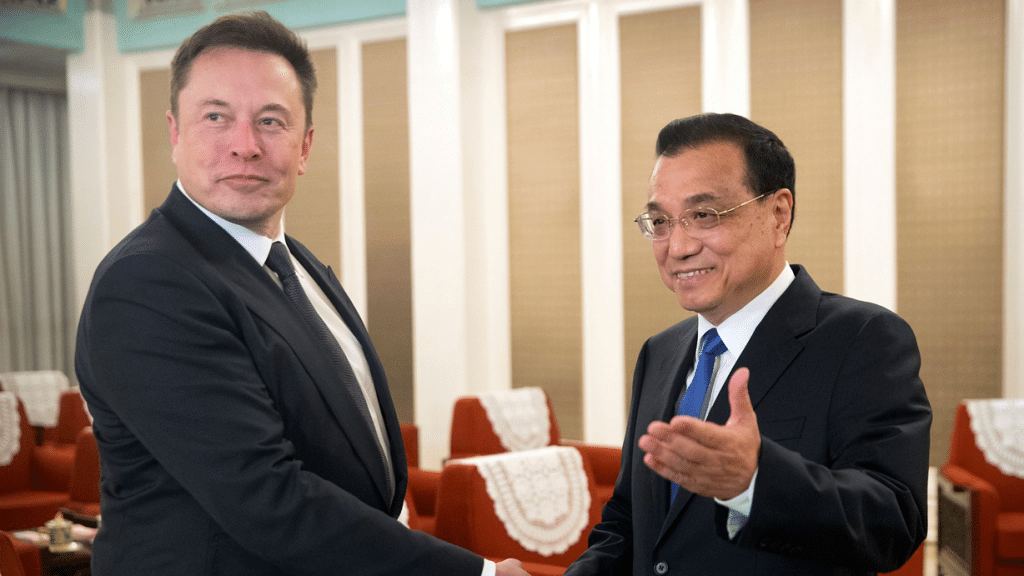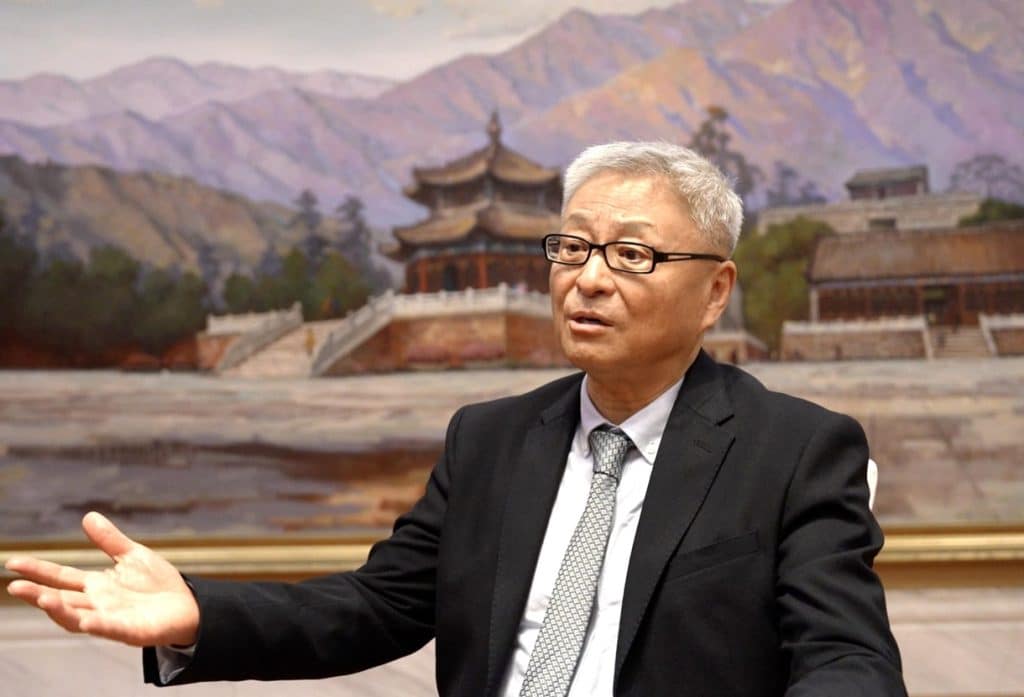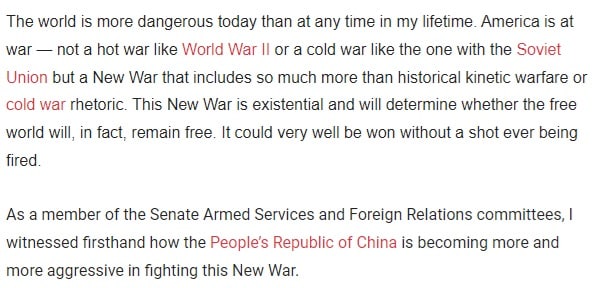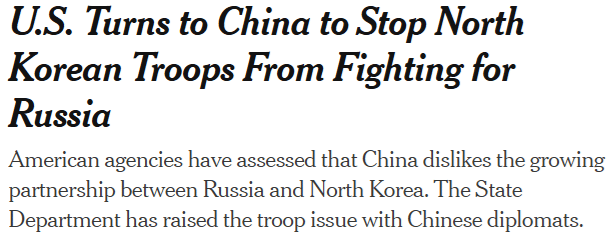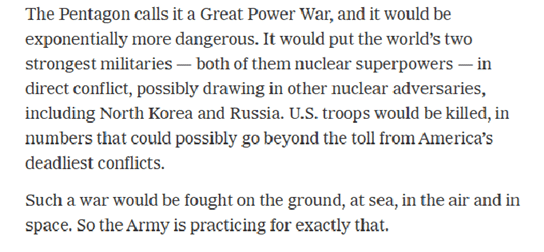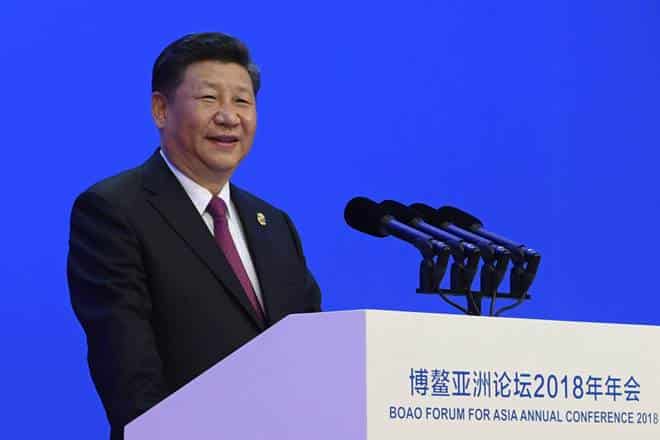Why is McCain so Anti-China
作者:Gretchen Trupp 来源:US-China Perception Monitor
The views expressed in this article belong entirely to the author of “Why is McCain so Anti-China?” and do not represent the views of the US-China Perception Monitor or the China Program at The Carter Center.
During his speech below on May 30th at the Alliance 21 Lecture , John McCain referred to China an “economic miracle” and stressed increasing alliances between multiple nations, including Australia. But, he gave a rather harsh statement about China’s continued growth and power that has brought about a swift critique of the Senator’s rhetoric. Here is the contentious quote that has garnered much press attention:
“THE CHALLENGE IS THAT AS CHINA HAS GROWN WEALTHIER AND STRONGER, IT SEEMS TO BE ACTING MORE AND MORE LIKE A BULLY. IT IS REFUSING TO OPEN MORE OF ITS ECONOMY SO THAT FOREIGN BUSINESSES CAN COMPETE FAIRLY. IT IS STEALING OTHER PEOPLES’ INTELLECTUAL PROPERTY. IT IS ASSERTING VAST TERRITORIAL CLAIMS THAT HAVE NO BASIS IN INTERNATIONAL LAW. AND IT IS USING ITS TRADE AND INVESTMENT AS TOOLS TO COERCE ITS NEIGHBORS”
In addition, in John McCain’s recent recommendations given a few months ago for the 2018-2022 defense budget call for increased U.S. military spending to counter China’s rising global influence as well as strengthen the U.S.’s presence in the South China Sea. He has stressed peaceful solutions to these issues before, but his recent incendiary comments have brought about a variety of negative responses from Chinese news media sites that will make it potentially difficult to cooperate with China in the future. McCain does not represent all of the U.S. government, which is known by China—but he is certainly a loud voice with a sway in public opinion. With someone as militarily and politically influential as John McCain calling for more military exercises in the South China Sea specifically to counteract China, this signifies that the some members of the United States are once again calling claims of sovereignty into question and voicing their distrust in the government. While these exercises are supposedly going to be held to combat China’s “militarization” of the islands, China has rejected the claims McCain has made regarding the militarization of the South China Sea islands. In addition, this budget (as well as the budget for the fiscal year) has also been accused of spending too much on the continued increase of the military as a whole.
This usage of “bully” to describe China’s actions can particularly imply that China’s presence in the South China Sea is unfounded, and by using this language McCain gives China a very negative connotation in the American media. As an especially public figure, these accusations can carry a lot of weight and can negatively influence people’s impressions of China. This negative language has begun to turn on him however, as appalled news outlets and internet users respond to McCain’s attack on China. Notably, several Chinese Media outlets on such as Junshi Xilu and M4 describe McCain’s statements as “verbally abusive“, and categorize his intensely negative claims about China as “false accusations“. Most Chinese sites, social and news alike, are incredibly unhappy with the manner in which McCain portrays China in his speech. His demonstrated fears of China militarizing the islands in the South China Sea and becoming too strong have also been described as “Cold War Thinking“. This ideology suggests that McCain’s worries are not based on fact, but on fears and speculation of the United States losing power at the hands of another country.
In addition to news sources, Chinese social media has recently shown an increased interest in the Senator, with over 27,000 mentions of his name on the day of his speech, as shown in the above graph. While the upward spikes reflect more general occasional trends that increase every so often, the most notable and highest media spike was on the 30th (the same day as his lecture). A general increasing trend in the following day displays that this his comments have certainly made some waves across China. Other Chinese news sources have since described McCain as anti-communist and even anti-Chinese due to his comments. Hua Chunying, Chinese Foreign Ministry spokesperson, also notes that McCain’s claims about China violating International Law in the South China Sea are unfounded, and that the laws themselves can be very confusing. China stands by the resolution that they have sovereignty over the islands, despite McCain’s comments that reveal his skepticism towards this claim. While China does have its own view on sovereignty that is sometimes not in accordance with international law, McCain’s continued have the potential to put U.S.-China relations on incredibly shaky ground. Other news organizations such as Reuters and the CATO Institute have declared that these comments will “escalate tensions”, and that in terms of foreign policy he is “worse than Bush”, respectively.
This is not the first time McCain has expressed anti-Chinese views or been overly cautious of China’s development. Historically, McCain has wanted to work with China and has supported the One China Policy, but supported political reforms so that they would become a “non-threatening great power”, and claimed that a lack of spying led to Chinese nuclear development. Additionally, in his 1999 position papers, he called China the “primary threat to American interests and values”.
It seems these days the United States and China are locked in a tense relationship that currently does not show signs of improving. Already existing tensions in the South China Sea have been exacerbated by McCain’s comments, as well as the U.S. continuing to conduct exercises into the South China sea with the approval of other nations. The new $640 billion fiscal defense budget (if approved) shows that the United States will continue to strengthen its military even more, despite being one of the largest in the world. Other events such as Trump announcing that the United States will back out of the Paris Climate Agreement while China confirms increased involvement further widens the rift between the nations. Even though individual cities and states have offered to work with China and the EU to try and uphold the Paris agreements on their own, there could still be a chance that these initiatives are blocked. Comments such as the ones discussed above by John McCain will surely be on China’s mind as it moves forward to the future, with or without the United States as an active ally. Hopefully as time goes on, tensions will be smoothed and the U.S. and China will work together for mutual understanding and cooperation. The U.S. China relationship has been improving for some time under former President Obama, but this new administration has brought about many changes in policy and thinking that have caused the relationship to hit a rough patch. Whether the content of McCain’s comments are only his own or reflect the views of other in power, it’s hard to say.
From his anti-China outbursts and the very title of his defense budget, “Restoring American Power”, it becomes clear that McCain is very afraid of America losing power. Even though the U.S. spends more money on military than China, Saudi Arabia, Russia, the U.K, India, France, and Japan combined, McCain still insists that America is “not spending enough” and is thus losing their stance as a global power. He appears to buy into the myth of American superiority— an idea that places America at the pinnacle of ideals like democracy and tout America as the “leader of the free world”. At the 2004 Republican National Convention he encourages the audience to “take courage from the knowledge that our military superiority is matched only by the superiority of our ideals”. McCain has also called America “the greatest force for good in the history of the world” at the 2008 presidential debates. These comments as well as his “Cold-War Thinking”, reflect perceptions that the U.S. is a superior, morally sound global power. A nation like China who is growing stronger and is gaining more stake in global affairs could potentially undermine that power. A nation with different ideals and government structure gaining influence could be a driving force behind McCain’s desire to strengthen the U.S. military. American democracy rewards people like John McCain, and if a nation that doesn’t espouse the same ideals is rising to global power, they become a threat to American power and therefore American ideals. McCain’s anti-Chinese outbursts seem to stem from these deep-rooted fears, which are greatly influencing his policy decisions. These policy and military decisions, depending on their approval, will then impact Sino-U.S. relations in pertinent yet unforeseen ways. If he truly wants to strengthen U.S. ties with China and cooperate for mutual benefit, perhaps he should first examine where his anti-China fears that affect his policy stem from.
(FEATURED IMAGE CREDIT: UNITED STATES STUDIES CENTER) By GRETCHEN TRUPP JUNE. 8, 2017
Gretchen Trupp is a Summer 2017 intern at The Carter Center China Program.
来源时间:2018/4/3 发布时间:2017/6/8
旧文章ID:15650


